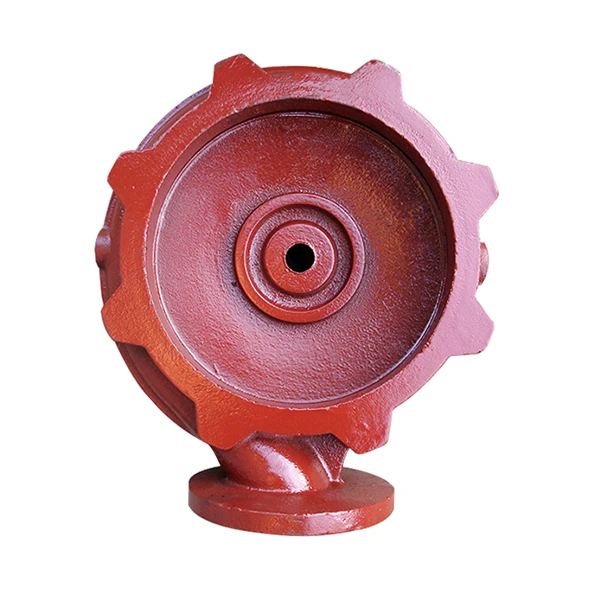Mobile:+86-311-808-126-83
Email:info@ydcastings.com
circulation pump impeller
Understanding the Importance of Circulation Pump Impellers
Circulation pumps are vital components in numerous systems across various industries, including heating, cooling, and water distribution. At the heart of these pumps lies the impeller, a critical part that significantly influences the pump's performance, efficiency, and reliability. This article delves into the role of circulation pump impellers, their types, design considerations, and the impact they have on overall system performance.
The Role of Impellers in Circulation Pumps
The primary function of a pump impeller is to convert the mechanical energy from the motor into hydraulic energy. It does this by imparting kinetic energy to the fluid as it passes through the pump. Impellers create a pressure difference that allows liquids to flow smoothly through piping systems, making them essential for adequate circulation.
When fluid enters the impeller, it is accelerated by the rotating blades, resulting in increased velocity and pressure. This process facilitates the movement of fluids in various applications, such as HVAC systems, aquariums, and industrial processes. The efficiency of this process is largely determined by the design of the impeller.
Types of Impellers
Impellers come in various designs, tailored to meet specific operational requirements. The most common types include
1. Open Impellers These consist of blades fixed to a central hub with no covering. They are simple in design and often used in applications where the fluid contains solid particles. However, they are less efficient at higher speeds.
2. Closed Impellers These have blades that are enclosed between two shrouds. This design improves efficiency and allows for better management of fluid flow and pressure, making them suitable for a wide range of applications.
3. Semi-Open Impellers These are a hybrid of open and closed impellers, combining some characteristics of both. They are designed for applications where the fluid contains moderate amounts of solids.
Choosing the right type of impeller for a specific application is critical. Factors such as the nature of the fluid, required flow rates, and the presence of solids should all be considered during the selection process.
circulation pump impeller

Design Considerations
The design of an impeller is influenced by several factors, including
- Blade Shape and Size The shape and size of the blades determine the flow characteristics and efficiency of the impeller. Curved blades typically offer smoother flow and higher efficiency compared to straight blades.
- Material Impellers can be made from various materials, including stainless steel, bronze, plastic, or cast iron. The choice of material should match the application's corrosiveness, temperature, and pressure requirements.
- Performance Curve This curve illustrates the relationship between the flow rate and head developed by the pump. An optimal impeller design will have a performance curve tailored to specific operational requirements, ensuring that the pump operates efficiently across a range of conditions.
Impact on System Performance
The efficiency of the circulation pump impeller directly affects the overall performance of the system. An efficient impeller minimizes energy consumption, reduces wear and tear on the pump, and extends its lifespan. Conversely, a poorly designed impeller can lead to increased energy costs, frequent maintenance, and premature pump failure.
Additionally, the impeller’s design influences cavitation, a phenomenon that can cause damage to the pump. Cavitation occurs when vapor bubbles form in low-pressure areas and collapse violently in high-pressure regions. A well-designed impeller can mitigate this risk by maintaining stable pressure throughout the pump's operation.
Conclusion
In conclusion, the impeller is a fundamental component of circulation pumps that plays a crucial role in system performance. Understanding the types of impellers and their design considerations can help engineers and operators select the most appropriate options for their specific applications. By focusing on efficiency and reliability, the right impeller choice contributes significantly to the smooth operation and longevity of circulation systems. Whether in industrial settings or residential applications, acknowledgment of the importance of the impeller will lead to improved performance and optimized energy use.
-
Understanding Metal Casting TechniquesNewsApr.02,2025
-
Understanding Exhaust Manifolds for Enhanced Engine PerformanceNewsApr.02,2025
-
The World of Metal FabricationNewsApr.02,2025
-
Key Components for Pump and Turbo EfficiencyNewsApr.02,2025
-
Essential Tools for Automotive Maintenance and RepairNewsApr.02,2025
-
Durable Valve Components for Effective Water ManagementNewsApr.02,2025











